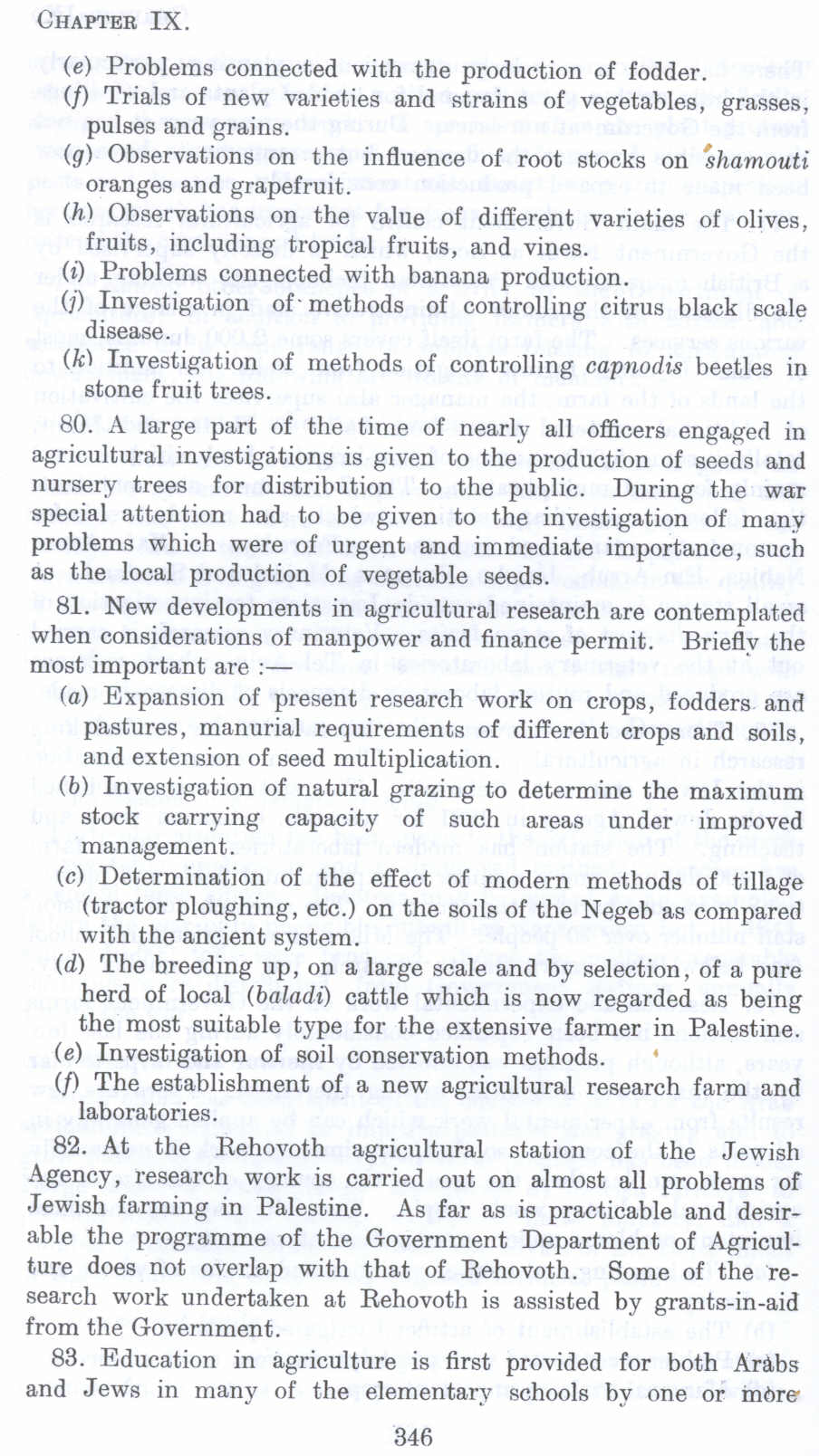| Prev | Next |  |
| Prev | Next |
| PalestineRemembered | About Us | Oral History | العربية | |
| Pictures | Zionist FAQs | Haavara | Maps | |
| Search |
| Camps |
| Districts |
| Acre |
| Baysan |
| Beersheba |
| Bethlehem |
| Gaza |
| Haifa |
| Hebron |
| Jaffa |
| Jericho |
| Jerusalem |
| Jinin |
| Nablus |
| Nazareth |
| Ramallah |
| al-Ramla |
| Safad |
| Tiberias |
| Tulkarm |
| Donate |
| Contact |
| Profile |
| Videos |
British Mandate: A Survey of Palestine: Volume I - Page 346 |
Disclaimer
The above documents, article, interviews, movies, podcasts, or stories reflects solely the research and opinions of its authors. PalestineRemembered.com makes its best effort to validate its contents.


Post Your Comment
*It should be NOTED that your email address won't be shared, and all communications between members will be routed via the website's mail server.
(e) Problems connected with the production of fodder.
(f) Trials of new varieties and strains of vegetables, grasses, pulses and grains.
(g) Observations on the influence of root stocks on shamouti oranges and grapefruit.
(h) Observations on the value of different varieties of olives, fruits, including tropical fruits, and vines.
(i) Problems connected with banana production.
(j) Investigation of• methods of controlling citrus black scale disease.
(k) Investigation of methods of controlling capnodis beetles in stone fruit trees.
80. A large part of the time of nearly all officers engaged in agricultural investigations is given to the production of seeds and nursery trees for distribution to the public. During the war special attention bad to be given to the investigation of many problems which were of urgent and immediate importance, such as the local production of vegetable seeds.
81. New developments in agricultural research are contemplated when considerations of manpower and finance permit. Briefly the most important are :-
(a) Expansion of present research work on crops, fodders and pastures, manurial requirements of different crops and soils, and extension of seed multiplication.
(b) Investigation of natural grazing to determine the maximum stock carrying capacity of such areas under improved management.
(c) Determination of the effect of modern methods of tillage (tractor ploughing, etc.) on the soils of the Negeb as compared with the ancient system.
(d) The breeding up, on a large scale and by selection, of a pure herd of local (baladi) cattle which is now regarded as being the most suitable type for the extensive farmer in Palestine.
(e) Investigation of soil conservation methods. *
(f) The establishment of a new agricultural research farm and laboratories.
82. At the Rehovoth agricultural station of the Jewish Agency, research work is carried out on almost all problems of Jewish farming in Palestine. As far as is practicable and desirable the programme of the Government Department of Agriculture does not overlap with that of Rehovoth. Some of the 'research work undertaken at Rehovoth is assisted by grants-in-aid from the Government.
83. Education in agriculture is first provided for both Arabs and Jews in many of the elementary schools by one or morn
Page 346